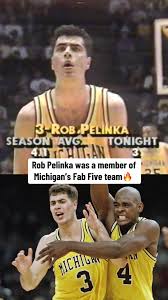Rob Pelinka: The Architect Behind the Lakers’ Success

Introduction
Rob Pelinka, the General Manager and Vice President of Basketball Operations for the Los Angeles Lakers, has become a pivotal figure in the NBA over recent years. His strategic decisions have had a monumental impact on the team’s success, particularly in their quest for an NBA championship. With the Lakers experiencing both tumultuous and triumphant periods during his tenure, Pelinka’s role has underscored the importance of effective leadership in professional sports.
Key Decisions and Achievements
Pelinka took the helm as the Lakers’ General Manager in 2017, succeeding the legendary Mitch Kupchak. Perhaps his most significant move came in 2019 when he orchestrated the trade to acquire superstar Anthony Davis from the New Orleans Pelicans. This bold decision not only reshaped the team’s roster but also played a crucial role in the Lakers winning the NBA championship in 2020, their 17th in franchise history, tying them with the Boston Celtics for the most championships.
Another vital change came during the 2022 offseason. Amidst the team’s struggles, Pelinka re-evaluated the Lakers’ roster composition, resulting in the acquisition of multiple key players like Rui Hachimura and D’Angelo Russell, aimed at providing better support to LeBron James and Davis. The success of these transactions has kept the team’s championship aspirations alive heading into the current season.
Challenges Ahead
However, Pelinka’s journey has not been without its challenges. Transitioning from a dominant championship team to a revamped roster requires navigating complex player dynamics and managing expectations. The departure of key figures, like former coach Frank Vogel, also highlighted internal conflicts that seemed to ripple through the organization, raising questions about the future direction under Pelinka’s guidance.
Looking Forward
As the 2023-2024 season progresses, all eyes will be on Pelinka and how he continues to build around the Lakers’ star players. With increasing pressure from fans and the media, his ability to make the right decisions in trades and player development will be critical for not only retaining star talent but also ensuring the franchise remains competitive in a rapidly evolving league.
Conclusion
Rob Pelinka’s leadership as the Lakers’ General Manager presents a fascinating case study in contemporary sports management. His successes and challenges reflect the broader trends in the NBA, where front office strategies play a crucial role in determining a team’s trajectory. For fans globally, the coming months will reveal whether Pelinka can leverage his experience and insights to regain the Lakers’ status as a perennial championship contender.









